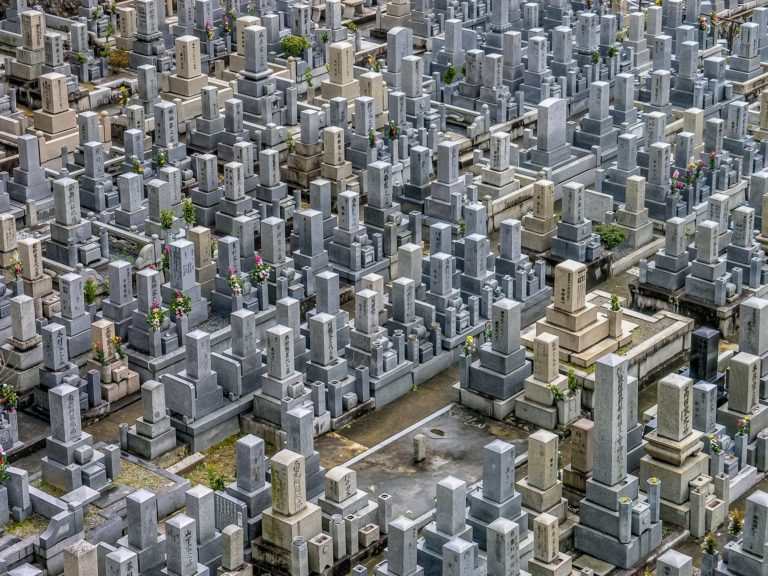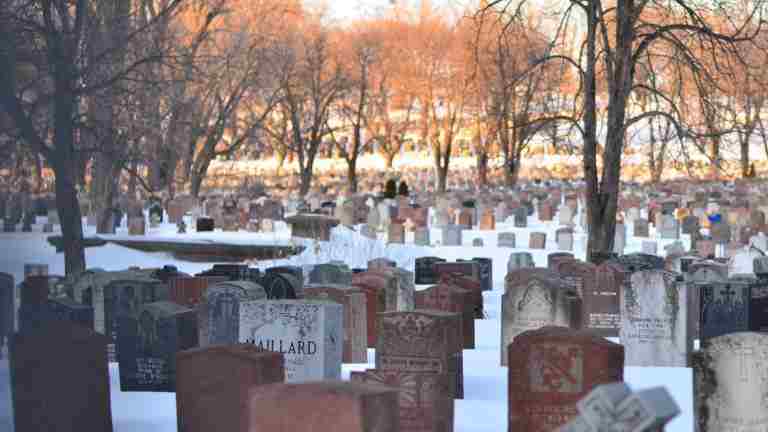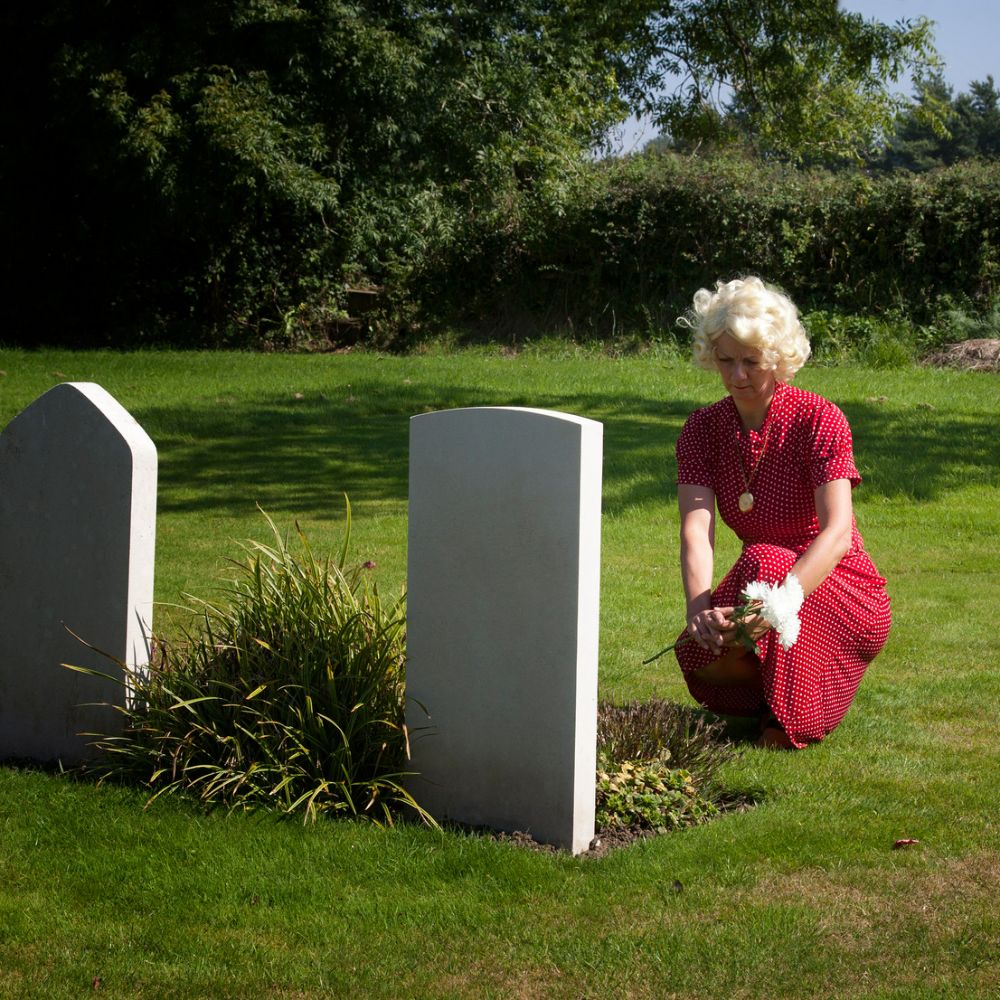All Articles & Guides / Cemetery / Will the U.S Eventually Run Out of Space for Cemeteries?
Will the U.S. Eventually Run Out of Space for Cemeteries?
The U.S. is a large country, but actually has a low population density. However, just because land is open, doesn’t mean it is usable, and some fear that we may actually run out of space for cemeteries. Countries such asEngland and others in Europe have some areas that have already run out of usable land and are now exhuming graveyards, burying coffins on top of each other, and even digging up old sites to cremate the remains.
Cremation vs Burial
Why do some people choose to be buried versus cremated? Some decisions are made from a religious viewpoint while others are a personal preference or even a financial decision. Even countries with some religious opposition have started building multi-story underground burial tunnels to house the dead so that the living can continue residing above ground.
Burial & Cremation Costs
Burial and funeral costs have increased exponentially over the years. According to the National Funeral Directors Association, the average cost of a funeral with a viewing and burial today is $7,640. If you add in a vault, it brings the cost up to $9,135. These costs have grown 6.4% to 7.4% from 5 years ago. You will also need to consider the cost of purchasing a burial plot. Plots can range anywhere from a few hundred to $4,000 on average (although Money Sense has mentioned that the most expensive plot in the U.S. is an astonishing $4.6 million at Westwood Village Park Memorial). On the other hand, a cremation without a funeral service can cost less than $1,000 with many affordable cremation urns.

How Many Cemeteries Are There?
Today there are 20,272 registered cemeteries in the U.S. These don’t account for hidden graveyards, pet cemeteries, or natural graves used by Native Americans. Our nation’s history shows that official cemeteries weren’t always used. Throughout the civil war, soldiers, and often slaves, were buried with stone markers, or sometimes no markers at all. These hidden graveyards have posed issues in modern day with construction companies finding remains when preparing subdivisions or new buildings, as was the case for a Tampa apartment complex.
How Many People Have Lived Since Time Began?
This infographic from Live Science, estimates that over 108 billion people have lived in the world since the beginning of human existence. There are currently 7.8 billion people, meaning that there are an estimated 13.8 dead people to every one person still living. It’s interesting to think that the remains and ashes of ancestors may be beneath our feet, on the very ground we live on.
However, the question remains, will we eventually run out of space (and if so, when)?
Do Some States Have Limited Cemetery Space?
We gathered data to compare metrics related to population and death rates along with available land and cemeteries to see what possibilities existed.
Here are the metrics we used:
Death Rate: As provided by the Centers for Disease Control and Prevention (CDC), the number of deaths compared to the population in that state equals an approximate death rate.
Burial Opportunity: The number of all types of registered cemeteries by state from the Census Bureau divided by the number of deaths per year shows us how many deaths each cemetery needs to account for when determining plots and expansion or recycling. Not all cemeteries recycle plots and some may already be filled to capacity, but there was no readily available data for these metrics.
Population Density: Comparing population to land shows how sparse or dense a state’s population is.
Population Growth: Finding the difference between population growth and death rate – states that have the highest growth are ranked as more at risk of possibly not having the space for burials.

States Most at Risk to Run Out of Cemetery Space
These are the top ten states that will run out of cemetery space based on our metrics.
- California
- Hawaii
- Maryland
- New Jersey
- New York
- Virginia
- Massachusetts
- Georgia
- Washington
- Nevada
Below you’ll find where each state ranked for all metrics analyzed as well as their overall likeliness to run out of cemetery space.
| Overall | State | Death Rate | Population Density | Population Growth | Burial Expectancy |
|---|---|---|---|---|---|
| 1 | California | 4 | 7 | 20 | 28 |
| 2 | Hawaii | 6 | 12 | 29 | 19 |
| 3 | Maryland | 14 | 5 | 24 | 24 |
| 4 | New Jersey | 20 | 1 | 39 | 9 |
| 5 | New York | 15 | 9 | 47 | 1 |
| 6 | Virginia | 12 | 13 | 18 | 30 |
| 7 | Massachusetts | 22 | 3 | 22 | 26 |
| 8 | Georgia | 10 | 18 | 14 | 34 |
| 9 | Washington | 7 | 23 | 7 | 41 |
| 10 | Nevada | 11 | 19 | 5 | 43 |
| 11 | Utah | 2 | 28 | 1 | 47 |
| 12 | Texas | 5 | 27 | 2 | 46 |
| 13 | Delaware | 29 | 6 | 16 | 32 |
| 14 | Colorado | 3 | 33 | 6 | 42 |
| 15 | Rhode Island | 36 | 2 | 46 | 2 |
| 16 | New Hampshire | 18 | 20 | 26 | 22 |
| 17 | North Carolina | 24 | 15 | 12 | 36 |
| 18 | Arizona | 13 | 29 | 8 | 40 |
| 19 | Minnesota | 8 | 35 | 19 | 29 |
| 20 | Florida | 39 | 8 | 3 | 45 |
| 21 | Michigan | 92 | 16 | 38 | 10 |
| 22 | Wisconsin | 23 | 25 | 32 | 16 |
| 23 | Indiana | 33 | 17 | 28 | 20 |
| 24 | Idaho | 9 | 41 | 4 | 44 |
| 25 | Alaska | 1 | 50 | 33 | 15 |
| 26 | Ohio | 42 | 11 | 37 | 11 |
| 27 | South Carolina | 35 | 21 | 10 | 38 |
| 28 | Pennsylvania | 47 | 10 | 42 | 6 |
| 29 | Oregon | 25 | 32 | 11 | 37 |
| 30 | New Mexico | 16 | 44 | 40 | 8 |
| 31 | Tennessee | 41 | 22 | 17 | 31 |
| 32 | Louisiana | 37 | 26 | 35 | 13 |
| 33 | Vermont | 27 | 36 | 45 | 3 |
| 34 | Wyoming | 17 | 47 | 44 | 4 |
| 35 | Kentucky | 44 | 24 | 30 | 18 |
| 36 | Missouri | 40 | 31 | 31 | 17 |
| 37 | Nebraska | 26 | 45 | 21 | 27 |
| 38 | Kansas | 31 | 43 | 36 | 12 |
| 39 | Connecticut | 21 | 4 | 48 | 50 |
| 40 | North Dakota | 28 | 48 | 9 | 39 |
| 41 | South Dakota | 30 | 46 | 13 | 35 |
| 42 | Iowa | 38 | 40 | 25 | 23 |
| 43 | Alabama | 49 | 30 | 34 | 14 |
| 44 | Illinois | 19 | 14 | 49 | 49 |
| 45 | Mississippi | 46 | 37 | 43 | 5 |
| 46 | Montana | 34 | 49 | 15 | 33 |
| 47 | Oklahoma | 45 | 39 | 23 | 25 |
| 48 | Maine | 43 | 42 | 41 | 7 |
| 49 | Arkansas | 48 | 38 | 27 | 21 |
| 50 | West Virginia | 50 | 34 | 50 | 48 |
What Does This Mean for Our Future?
Today, some cemeteries rent out plots, which allows people to lease a space for up to 100 years before the grave is allowed to be recycled and reused. Many countries around the world have resorted to this process as their available land begins to fill.
Although we cannot say for certain that eventually we will run out of space, based on the metrics we were able to gather information for, some states may be more at risk of running out of available space for cemeteries. Since data is limited, and it would be impossible to check each of the 26,000+ registered cemeteries nationwide for acreage and plot space, we rely on the data available to us to guide our guestimates.
Surprised that your state is at the top of the list? Do you have stories or experiences to share with first-hand experience? We’d love to hear from you.
Related Content





